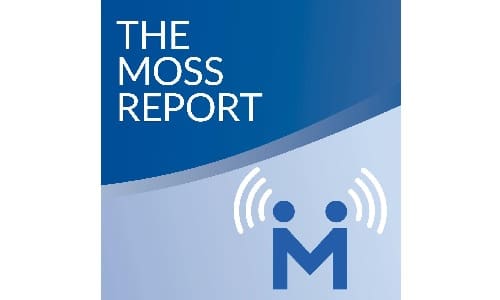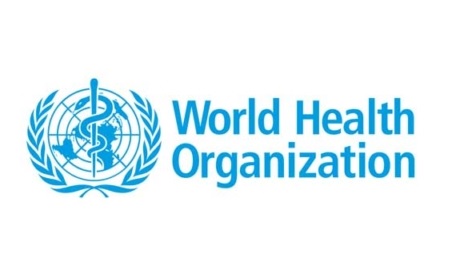This ancient therapy originating in China involves inserting very thin needles into the body surface at specific points; it is effective in treating many cancer symptoms and side effects.
How do experts use acupuncture?
Both medical groups and integrative experts provide recommendations for acupuncture in treating people with cancer. Learn more about the approaches and meanings of recommendations. See Integrative Oncology Programs and Expert Guidelines ›
Clinical practice guidelines
The 2016 ACS/ASCO breast cancer survivorship care guideline recommends acupuncture to treat musculoskeletal symptoms, including pain.
2013 clinical practice guidelines from the American College of Chest Physicians recommend acupuncture or related techniques as an adjunct treatment option for lung cancer patients with these conditions:
- Nausea and vomiting from either chemotherapy or radiation therapy
- Cancer-related or and peripheral neuropathy with inadequate control of symptoms
The 2016 ASCO clinical practice guideline for management of chronic pain in survivors of adult cancers gives a weak recommendation for acupuncture to manage chronic pain. The reviewers concluded that benefits of acupuncture outweigh harms, although the quality of evidence is low.
Acupuncture may be a suitable alternative to medications for men with vasomotor symptoms.
Acupuncture and electroacupuncture can be considered for the management of moderate to severe vasomotor symptoms in women with a history of breast cancer noting there is inconsistent evidence regarding their effectiveness (evidence is weak and recommendation must be applied with caution).
Acupuncture can be considered for the management of sleep disturbance in women with a history of breast cancer (evidence provides some support for recommendation(s) but care should be taken in its application).
The 2019 guideline recommends acupuncture for pain, constipation, and insomnia.
International Trustworthy Traditional Chinese Medicine Recommendations (TCM Recs) Working Group
Acupuncture for cancer pain: an evidence-based clinical practice guideline ›
A strong recommendation for the treatment of acupuncture rather than no treatment to relieve pain in patients with moderate to severe cancer pain
A weak recommendation for the combination treatments with acupuncture/acupressure to reduce pain intensity, decrease the opioid dose, and alleviate opioid-related side effects in moderate to severe cancer pain patients who are using analgesics
A strong recommendation for acupuncture in breast cancer patients to relieve their aromatase inhibitor-induced arthralgia
The 2020 NCCN survivorship care guidelines list acupuncture as a treatment option for these conditions:
- Hot flashes
- Fatigue
- Neuropathic pain
- Myofascial pain
- Joint pain (arthralgias) and muscle pain (myalgias)
NCCN Guidelines for Patients®: Nausea and Vomiting Version 1.2016 ›
The version 1.2016 guidelines for nausea and vomiting state that acupuncture is a “complementary therapy used to treat nausea and vomiting.”
NCCN Clinical Practice Guidelines in Oncology: Cancer-Related Fatigue. Version 2.2022 ›
These guidelines recommend acupuncture after treatment to manage cancer-related fatigue, based on lower-level evidence.
Shanghai Association of Chinese Integrative Medicine
These 2018 guidelines give a weak recommendation for acupuncture to relieve pain or reduce gastrointestinal reactions such as vomiting during TACE and other treatments (low level of evidence).
The 2009 Society for Integrative Oncology (SIO) clinical practice guidelines recommend acupuncture for these conditions:
Pain: Acupuncture is recommended as a complementary therapy when pain is poorly controlled, when nausea and vomiting associated with chemotherapy or surgical anesthesia are poorly controlled, or when the side effects from other modalities are clinically significant (strong recommendation).
Dry mouth from radiotherapy: Acupuncture is recommended as a complementary therapy for radiation-induced dry mouth (xerostomia) (strong recommendation).
Hot flashes: Acupuncture does not appear to be more effective than sham acupuncture for treatment of vasomotor symptoms (hot flashes) in postmenopausal women in general. In patients experiencing severe symptoms not amenable to pharmacologic treatment, however, a trial of acupuncture treatment can be considered (strong recommendation).
Smoking cessation: For patients who do not stop smoking despite use of other options, a trial of acupuncture may be helpful, but more clinical studies of acupuncture are warranted (weak recommendation).
Patients suffering from symptoms such as cancer-related breathlessness (dyspnea), cancer-related fatigue, chemotherapy-induced neuropathy, or post-thoracotomy pain, a trial of acupuncture may be helpful, but more clinical studies of acupuncture are warranted (weak recommendation).
The guidelines also include cautions: “Acupuncture should be performed only by qualified practitioners and used cautiously in patients with bleeding tendencies.”
Clinical practice guidelines on the evidence-based use of integrative therapies during and after breast cancer treatment › This set of guidelines has been endorsed by the American Society of Clinical Oncology (ASCO).1Lyman GH, Greenlee H et al. Integrative therapies during and after breast cancer treatment: ASCO endorsement of the SIO clinical practice guideline. Journal of Clinical Oncology. 2018 Sep 1;36(25):2647-2655.
The 2017 SIO clinical practice guidelines regarding breast cancer patients states that acupuncture can be considered as an addition to antiemetic drugs to control nausea and vomiting during chemotherapy. The guidelines also says acupuncture can be considered for these circumstances:
- Reducing anxiety
- As an addition to anti-emetics drugs to control vomiting during chemotherapy
- Improving fatigue after treatment
- Managing pain
- Improving mood disturbance and depressive symptoms
- Improving quality of life
- Improving hot flashes
- Improving lymphedema
Researchers from these organizations came to consensus on these recommendations:
- Acupuncture should be offered to patients experiencing AI-related joint pain in breast cancer (moderate recommendation).
- Acupuncture may be offered to patients experiencing general pain or musculoskeletal pain from cancer (moderate recommendation).
- Acupuncture or acupressure may be offered to patients undergoing cancer surgery or other cancer-related procedures such as bone marrow biopsy (weak recommendation).
- Acupuncture may be offered to patients experiencing chemotherapy-induced peripheral neuropathydamage to the peripheral nerves outside the brain and spinal cord from cancer treatment (weak recommendation).
After cancer treatment: weak recommendation for acupuncture for women with breast cancer to improve anxiety symptoms
After cancer treatment: no recommendation for or against acupuncture to reduce the severity of cancer-related fatigue
Published protocols, programs, and approaches
Acupuncture is used in programs, approaches and protocolsa package of therapies combining and preferably integrating various therapies and practices into a cohesive design for care from these integrative oncologists, drawing from both scientific research and observations from years or even decades of treating people with cancer.
Lise Alschuler, ND, FABNO, and Karolyn Gazella
Alschuler LN, Gazella KA. The Definitive Guide to Cancer, 3rd Edition: An Integrative Approach to Prevention, Treatment, and Healing. Berkeley, California: Celestial Arts. 2010
Alschuler LN, Gazella KA. The Definitive Guide to Thriving after Cancer: A Five-Step Integrative Plan to Reduce the Risk of Recurrence and Build Lifelong Health. Berkeley, California: Ten Speed Press. 2013.
Approaches are described for certain cancer types, or along with certain conventional therapy treatments, or for particular conditions such as insulin resistance.
Acupuncture is used for managing side effects and symptoms including pain.
Keith Block, MD
Block KI. Life over Cancer: The Block Center Program for Integrative Cancer Care. New York: Bantam Dell. 2009.
The integrative Block Program has recommendations to people who are at different places along the cancer continuum:
- Those who’ve been recently diagnosed
- Those in treatment
- Those who’ve concluded treatment and need to remain vigilant to prevent recurrence
Uses of acupuncture:
- Nausea and vomiting
- Smoking cessation
- Some respiratory difficulties
Raymond Chang, MD, FACP
Chang R. Beyond the Magic Bullet: The Anti-Cancer Cocktail. New York: Square One Publishers. 2012.
This book describes a “new therapy based on the knowledge that certain off-label drugs, nutrients, and therapies are each somewhat effective against cancer.” Dr. Chang combines approaches for added benefit.
Uses of acupuncture:
- Improving quality of life
- Part of a treatment “cocktail” with other therapies
Barbara MacDonald, ND, LAc
MacDonald B. The Breast Cancer Companion—A Complementary Care Manual: Third Edition. Self-published. 2016.
Naturopathic physician Barbara MacDonald provides information about breast cancer, its conventional treatment, and natural approaches to enhancing treatment, managing side effects, reducing risk of recurrence, and healthy living after cancer treatment is completed.
Neil McKinney, BSc, ND
McKinney N. Naturopathic Oncology, Fourth Edition. Victoria, BC, Canada: Liaison Press. 2020.
This book includes descriptions and uses of many natural and complementary protocols for cancer in general and for specific cancers. It also includes information on integrative support during conventional cancer treatment.
Uses of acupuncture:
- Breast cancer
- Leukemia
- Constipation
- Diarrhea
- Difficulty swallowing (dysphagia)
- Hot flashes
- Neuropathy
Gurdev Parmar, ND, FABNO, and Tina Kaczor, ND, FABNO
Parmar G, Kaczor T. Textbook of Naturopathic Oncology: A Desktop Guide of Integrative Cancer Care. 1st edition. Medicatrix Holdings Ltd. 2020.
This book provides information on the treatment of 24 cancers, plus the most effective treatments of the most common symptoms affecting cancer patients while they undergo chemotherapy, radiotherapy, or surgery.
Uses of acupuncture:
- Manage stress
- Chemotherapy-induced peripheral neuropathy
- Improve anorexia and quality of life in thyroid cancer
Traditional medicine
Acupuncture is used in traditional Chinese medicine therapy. Recommendations for use from Chinese medicine expert groups are listed above on this page.
Learn more about traditional Chinese medicine and how to find practitioners: Traditional Chinese Medicine and Professionals in Cancer Care ›
Other expert assessments
Current Oncology Reports
An expert review of evidence suggests that acupuncture might have a potential role in alleviating cancer-related fatigue.2David A, Hausner D, Frenkel M. Cancer-related fatigue-is there a role for complementary and integrative medicine? Current Oncology Reports. 2021 Nov 7;23(12):145.
Moss Reports

Subscription required.
Acupuncture “is now so generally accepted, that it has become quite conventional.”
Chinese medicine clinical service
A survey of experts published in 2020 found a positive consensus to recommend acupuncture for treating fatigue among palliative cancer patients.
World Health Organization
The World Health Organization published an extensive review of evidence in 2002 concluding that acupuncture is an effective treatment for many diseases, symptoms or conditions, including pain and other cancer symptoms.
Survey of naturopathic oncologists
A 2018 survey identified acupuncture as one of the most frequently identified interventions used by members of the Oncology Association of Naturopathic Physicians for lung and gastroesophageal cancer care.3Seely D, Ennis JK, McDonell E, Zhao L. Naturopathic oncology care for thoracic cancers: a practice survey. Integrative Cancer Therapies. 2018.
References

